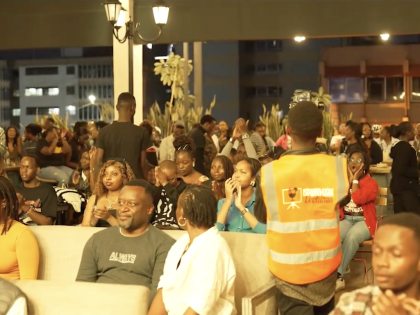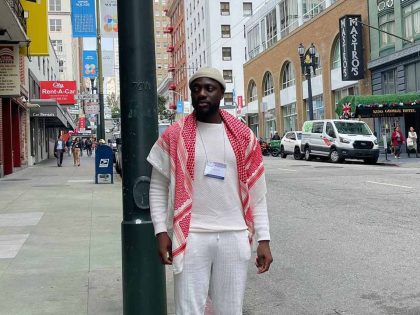
Pints and powerpoints
From IMF history to astrophysics, Nairobi’s Drunken Lectures turn casual drinkers into an engaged public.

From IMF history to astrophysics, Nairobi’s Drunken Lectures turn casual drinkers into an engaged public.

Hounded out of the United States for his pro-Palestine activism, Momodou Taal insists that the struggle is global, drawing strength from Malcolm X, faith, and solidarity across borders.

As students face repression for protesting genocide, universities must decide: will they defend freedom or enforce silence?

African contributions to the globalized world cannot be celebrated while the place occupied by African peoples remains on the periphery.

A contribuição africana no mundo globalizado não pode ser celebrada enquanto o lugar ocupado pelos povos africanos for o da periferia.

The Malcolm X effect of Gambian-British activist Momodou Taal.

Looking back at 20 years of research-based practice in Ghana, Jesse Weaver Shipley’s latest exhibition blurs the distinction between political rebels and artists.

Far from democratic institutions, a study of Israeli universities reveals that they are, in fact, directly and actively complicit in Israeli apartheid and racial rule.

To celebrate 20 years of research on sports in Africa, the SportsAfrica network will publish a series of monthly articles on Africa Is a Country drawing on their members’ research.

Para celebrar 20 anos de pesquisa sobre esportes na África, a rede SportsAfrica irá publicar uma série de artigos mensais no Africa Is a Country, baseando-se nas pesquisas de seus membros.

A new film follows the lives of four African students at MIT, where youthful idealism gets tested by the realities of American racism and inequality.

The life of Edward Webster, one of South Africa’s most distinguished sociologists, can be compared to a windmill—taking in the winds of change and turning them into a prodigious intellectual engagement.

Burna Boy’s ‘Monsters You Made’ takes the debate about the need for material decolonization outside the ivory tower and into the public sphere.

South Africans have to demand an academic boycott of Israel, in the same way much of the Global South boycotted apartheid South Africa’s universities.

American universities are trying to silence anyone who speaks up against Israel’s occupation and bombardment of Gaza.

On our annual publishing break, we’ll be pondering what the responsibility of the African intellectual is today.

Once associated with socialism, the language of participation has been co-opted. How was this radical idea depoliticized?

Academics in Angola’s public universities are on strike. But instead of only being concerned with the decay of higher education, they are connecting with the struggles of Angola’s working class.

Contemporary approaches to the legacy of colonialism tend to narrowly emphasize political agency as the solution to Africa’s problems. But agency is configured through historically particular relations of which we are not sole authors.

It is burgeoning field that intersects with Arabic, Francophone, Middle Eastern and African studies. But why is Amazigh Studies absent in Anglophone academia?